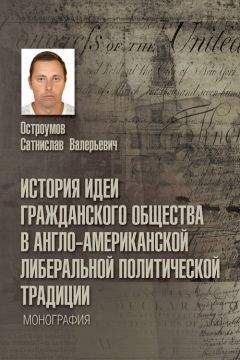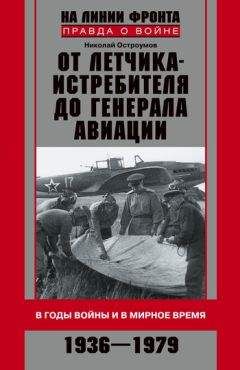Ознакомительная версия.
359. Olafson F. A. Society, law, and morality: readings in social philosophy from classical and contemporary sources. Eaglewood Cliffs: Prentice Hall, 1961. –518 p.
360. Ollaman B. Alienation: Marx`s conception of man in capitalist society. Cambridge: Cambridge University Press, 1971. – 325 p.
361. Orton W. A. The liberal tradition: a study of the social and spiritual conditions of freedom. New Haven: Yale University Press, 1945. – p. cm.
362. col1_1, Smith G. A. Filibusters and expansionists: Jeffersonian manifest destiny, 1800–1821. Tuscaloosa: University of Alabama Press, 1997. – 241p.
363. Paine T. Plan of a Declaration of the natural, civil and political rights of man // The life and works of Thomas Paine / Ed. by W. M. Van der Weyde. Vol. 7. New Rochelle, N.Y.: Thomas Paine National Historical Association, 1925. P. 315–327.
364. Paine T. Rights of man. Common sense / With an Introduction by M. Foot. Everyman’s Library: David Campbell Publishers Ltd., 1994. – 306 p.
365. Paradoxes of civil society: new perspectives on modern German and British history / Ed. by F. Trentmann. New York, Oxford: Berghahn, 2000. – 380 p.
366. Peterson G. P. Private property in Marxian and catholic social thought. Ph. D. dissertation. Colorado State University, 1979. – p. cm.
367. Phillips P. Marx and Engels on law and laws. Totowa: Barnes & Noble Books, 1980. – 238 p.
368. Pinkard T. German philosophy 1760–1860: the legacy of idealism. Cambridge: Cambridge University Press, 2002. – 382 p.
369. Plamenatz J. The English utilitarians. Oxford: Blackwell, 1958. – 192 p.
370. Pocock J. G. A. The Machiavellian moment: Florentine political thought and the Atlantic republican tradition. Princeton: Princeton University Press, 1975. – 602 p.
371. Pollock G. Civil society and nation. Ph. D. thesis. University of Sussex, 2002. – p. cm.
372. Popper K. The poverty of historicism. London: Routlege, 1961. – 166 p.
373. Popper K. The open society and its enemies. London: Routlege, 1995. –766 p.
374. Popper’s open society after 50 years: the continuing relevance of Karl Popper / Ed. by I. Jarvie and S. Pralong. London: Routledge, 1999. – 217 p.
375. Pound R. Law // Immanuel Kant, 1724–1924 / Ed. by E. C. Wilm. New Haven: Yale University Press, 1925. – 88 p.
376. Pratt S. L. Native pragmatism: rethinking the roots of American philosophy. Bloomington: Indiana University Press, 2002. – 316 p.
377. Putnam R. Making democracy work. Princeton: Princeton University Press, 1993. – 258 p.
378. Rahe P. A. Republics ancient and modern: classical republicanism and the American Revolution. Chapel Hill: University of North Carolina Press, 1992. – 1201 p.
379. Rapaczynski A. Nature and politics: liberalism in the philosophies of Hobbes, Locke, and Rousseau. Ithaca: Cornell University Press, 1987. – 302 p.
380. Rawls J. A theory of justice. Cambridge, Mass.: Harvard University Press, 1971. – 607 p.
381. Rawls J. Justice as fairness: political not metaphysical // Philosophy and Public Affairs. 1985. Vol. 14. P. 223–251.
382. Rawls J. Justice as fairness: a guided tour. Cambridge, Mass.: Harvard University Press, 1989. – p. cm.
383. Rawls J. Political liberalism. New York: Columbia University Press, 1993. – 401 p.
384. Rawls J. The law of peoples // On human rights / Ed. by S. Shute and S. Hurley. New York: Basic Books, 1993. P. 41–82.
385. Rawls J. The domain of the political and overlapping consensus // The idea of democracy / Ed. by D. Copp, J. Hampton, J. E. Roemer. Cambridge: Cambridge University Press, 1993. P. 245–269.
386. Rawls J. Reply to Habermas // The Journal of Philosophy. 1995. Vol. 92. P. 132–180.
387. Rawls J. The idea of public reason revisited // Chicago Law Review.1997. Vol. 64. P. 765–807.
388. Raz J. The authority of law: essays on law and morality. Oxford: Clarendon Press, 1983. – 292 p.
389. Rees J. C. The thesis of the two Mills // Political Studies. 1977. Vol. 25. P. 369–382.
390. Rees J. C. John Stuart Mill’s On liberty. Oxford: Oxford University Press, 1985. – 210 p.
391. Reyburn H. The ethical theory of Hegel: a study of the philosophy of right. Oxford: Clarendon Press, 1921. – 271 p.
392. Riley J. Liberal utilitarianism: social choice theory and J. S. Mill`s philosophy. New York. Cambridge: Cambridge University Press, 1988. – 398 p.
393. Robbins C. The eighteenth-century commonwealthman: studies in the transmission, development, and circumstance of English liberal thought from the restoration of Charles II until the war with the Thirteen Colonies. Cambridge, Mass.: Harvard University Press, 1961. – p. cm.
394. Roberts J. M. The mythology of the secret societies. London: Secker and Warburg, 1972 – 370 p.
395. Robertson D. The Penguin dictionary of politics. Harmondsworth: Penguin, 1985. – 341 p.
396. Robson J. M. The improvement of mankind: the social and political thought of John Stuart Mill. Toronto: University of Toronto Press, 1968. – 292 p.
397. Rodewald R. A. Liberalism and the problem of justifying the state and other fundamental social institutions: an examination and criticism of the works of Wolff, Nozick and Rawls. Ph. D. thesis. University of California, 1978. – 377 p.
398. Rose N. Powers of freedom: reframing political thought. Cambridge: Cambridge University Press, 1999. – 321 p.
399. Rose R. Politics in England: an interpretation for the 1980s. London: Faber, 1980. – 378 p.
400. Rosen A. D. Kant`s theory of justice. Ithaca: Cornell University Press, 1993. – 237 p.
401. Rosen F. Jeremy Bentham and representative democracy. Oxford: Clarendon, 1983. – 255 p.
402. Rosen G. American compact: James Madison and the problem of founding. Lawrence: University Press of Kansas, 1999. – 237 p.
403. Rousseau J. J. The social contract and the discourses / Transl. by G. D. H. Cole. Everyman`s library: David Campbell Publishers, 1993. – 409 p.
404. Ruggiero G. The history of European liberalism / Transl. by R. G. Collingwood. Boston: Oxford University Press, 1961. – 476 p.
405. Ryan A. The philosophy of John Stuart Mill. London: Macmillan, 1970. – 268 p.
406. Ryan A. Popper’s politics: science and democracy // Karl Popper: a critical appraisal / Ed. by P. Catton and G. Macdonald. London, New York: Routledge, 2004. P. 281–306.
407. Sabine G. H. A history of political theory. New York: Holt, Rinehart & Winston, 1961. – 948 p.
408. Salami K. The coherence of political liberalism. Ph. D. thesis. University of Exeter, 1994. – p. cm.
409. Sandel M. Liberalism and the problem of the moral subject: John Rawls and the primacy of justice. Ph. D. thesis. University of Oxford, 1980. – p. cm.
410. Sandel M. Review of political liberalism // Harvard Law Review. 1994. Vol. 107. P. 1765–1794.
411. Schapiro J. S. Liberalism: its meaning and history. New York, London: Van Nostrand Reinhold, 1958. – p. cm.
412. Schlatter R. Private property. London: G. Allen & Unwin, 1951. – 283 p.
413. Seidman S. Liberalism and the origins of European social theory. Oxford: Blackwell and University of California Press, 1983. – 419 p.
414. Seliger M. The liberal politics of John Locke. London: Allen & Unwin, 1968. – 387 p.
415. Seligman A. The idea of civil society. New York: Free Press, 1992. – 241 p.
416. Shearmur J. F. G. The political thought of F. A. von Hayek. Ph. D. thesis. University of London, 1987. – 320 p.
417. Sidgwick H. The methods of ethics. Indianapolis: Hackett, 1981. – 528p.
418. Singh D. Isaiah Berlin and the idea of freedom. New Delhi: Classical Publishing, 1994. – 150 p.
419. Skorupski J. John Stuart Mill. London: Routledge, 1989. – 432 p.
420. Smith A. An inquiry into the nature of causes of the wealth of nations / Ed. by E. Cannan. New York: Modern Library, 1965. – 524 p.
421. Smith A. The wealth of nations / With an introduction by D. D. Raphael. Everyman`s library: David Campbell Publishers Ltd., 1991. – 621 p.
422. Smith A. The theory of moral sentiments / Ed. by D. D. Raphael and A. L. Macfie. Indianapolis: Liberty Classics, 1982. – 412 p.
423. Smith F. Thomas Paine, liberator. New York: Frederick A. Stokes Company, 1938. – 338 p.
424. Smith R. M. Liberalism and American constitutional law. Cambridge, Mass.: Harvard University Press, 1990. – 328 p.
425. Sommerville J. P. Thomas Hobbes: political ideas in historical context. New York: St. Martin`s Press, 1992. – 234 p.
426. Spinner H. F. Popper und die Politik: Rekonstruktion und Kritik der Sozial-Polit-und Geschichtsphilosophie des Kritischen Rationalismus. Vol. 1. Berlin: Dietz, 1978. – 624 s.
427. Steinberg J. Post-enlightenment philosophy and liberal universalism in the political thought of Isaiah Berlin and Richard Rorty. Ph. D. thesis. University of Oxford, 1998. – p. cm.
428. Steiner H. An essay on rights. Oxford: Blackwell, 1994. – 305 p.
429. Stewart A. Theories of power and domination. London: Sage, 2001. – 270 p.
430. Straus L. The political philosophy of Hobbes, its basis and its genesis / Transl. by E. M. Sinclair. Chicago: University of Chicago Press, 1952. – p. cm.
431. Strong T. Jean-Jacques Rousseau: the politics of the ordinary. Lanham and Oxford: Rowman and Littlefield, 2003. – p. cm.
432. Stuhr J. J. Democracy as a way of life // Philosophy and the reconstruction of culture: pragmatic essays after Dewey / Ed. by J. J. Stuhr. Albany: State University of New York Press, 1993. P. 37–58.
433. Sunstein C. R. Beyond the republican revival // Yale Law Journal. 1988. Vol. 97. P. 1539–1694.
434. Sykes A. The rise and fall of British Liberalism, 1776–1988. London, New York: Longman, 1997. – 316 p.
435. Taylor C. The politics of recognition // Multiculturalism / Ed. by A. Gutnam. Princeton: Princeton University Press, 1992. P. 25–73.
436. Taylor M. W. The paradise lost of liberalism: individualist political thought in late Victorian Britain. Ph. D. thesis. University of Oxford, 1989. – p. cm.
437. Teson F. The Rawlsian theory of international law // Ethics and International Affairs. 1995. Vol. 9. P. 79–99.
438. The collapse of liberal empire: science and revolution in the twentieth century / Ed. by P. N. Goldstene. Novato: Chandler and Sharp, 1988. – 139 p.
439. The Federalist papers reader and historical documents of our American heritage / Ed. by F. Quinn. Santa Ana: Seven Locks Press, 1997. – p. cm.
440. The idea of freedom: essays in honour of Isaiah Berlin / Ed. by A. Ryan. Oxford: Oxford University Press, 1979. – 297 p.
441. The liberal tradition: from Fox to Keynes / Ed. by A. Bullock and M. Shock. New York: New York University Press, 1957. – 288 p.
442. The liberal tradition in American politics: reassessing the legacy of American liberalism / Ed. by D. F. Ericson and L. B. Green. New York, London: Routledge, 1999. – 269 p.
443. The origins of left – libertarianism: an anthology of historical writings / Ed. by P. Vallentyne and H. Steiner. Houndmills, New York: St. Martin`s Press, 2000. – 236 p.
444. The reemergence of civil society in Eastern Europe and the Soviet Union / Ed. by Z. Rau. Boulder: Westview Press, 1991. – p. cm.
445. Thiery P. Zivilgesellschaft // Kleines lexicon der Politik / Hrsg. D. Nohlen. Bonn, Munchen: BpB, Beck, 2000. S. 593–595.
446. Thompson S. Political theory in a democratic society: a critique of political liberalism. Ph. D. thesis. University of Oxford, 1994. – p. cm.
447. Thompson K. From neighborhood to nation: the democratic foundations of civil society. Hanover, London: University Press of New England, 2001. – 195 p.
448. Tocqueville A. Democracy in America / Ed. by P. Bradly. Vol. 1. Everyman`s Library: David Campbell Publishers Ltd., 1994.
449. Tocqueville A. Democracy in America / Ed. by P. Bradly. Vol. 2. Everyman`s Library: David Campbell Publishers Ltd., 1994.
450. Traditions of liberalism: essays on John Locke, Adam Smith, and John Stuart Mill / Ed. by K. Haakonssen. St. Leonards: Centre for Independent Studies, 1988. – 201 p.
451. Tuck R. Politics // Hobbes. Oxford: Oxford University Press, 1989. P. 64–75.
452. Van Rooy A. Civil society and the aid industry. London: Earthscan, 1998.–256 p.
453. Walker F. F. British liberalism: some philosophic origins, the contributions of Adam Smith, Thomas Robert Malthus, Jeremy Bentham and Herbert Spencer. Ph. D. thesis. Stanford University, 1957. – p. cm.
454. Wall S. P. Liberalism, perfectionism and restraint. Ph. D. thesis. University of Oxford, 1996. – p. cm.
455. Walsh D. The growth of the liberal soul. Columbia: University of Missouri Press, 1997. – 386 p.
456. Warrender H. The political philosophy of Hobbes, his theory of obligation. Oxford: Clarendon Press, 1957. – 346 p.
457. Weiler P. The new liberalism: liberal social theory in Great Britain, 1889–1914. Ph. D. dissertation. Harvard University, 1969. – p. cm.
458. Weisberger R. W. Speculative freemasonry and the Enlightenment: a study of the craft in London, Paris, Prague, and Vienna. New York: Columbia University Press, 1993. – 243 p.
459. Westbrook R. B. John Dewey and American democracy. Ithaca: Cornell University Press, 1991. – 570 p.
460. White G. Civil society, democratization and development: clearing the analytical ground // Democratization. Autumn 1994. Vol. 1. № 3. P. 375–390.
461. Wildavsky A. Choosing preferences by constructing institutions: a cultural theory of preference formation // American Political Science Review. 1987. Vol. 81. P. 4 – 21.
462. Wijze S. A. Political liberalism: a consolidation, reconstruction, and defense. Ph. D. thesis. University of Sheffield, 1998. – p. cm.
463. Williams H. Kant`s political philosophy. New York: St. Martin`s Press, 1983. – 292 p.
464. Wiltse C. M. The Jeffersonian tradition in American democracy. Chapel Hill: University of North Carolina Press, 1935. – 273 p.
465. Wolff R. P. Understanding Rawls: a reconstruction and critique of «A theory of justice». Princeton: Princeton University Press, 1977. – 224 p.
466. Wood G. S. The creation of the American republic, 1776–1787. Chapel Hill: University of North Carolina Press, 1969. – 653 p.
467. Yarbrough J. M. American virtues: Thomas Jefferson on the character of a free people. Lawrence: University Press of Kansas, 1998. – 256 p.
468. Young J. P. Reconsidering American liberalism: the troubled odyssey of the liberal idea. Boulder: Westview Press, 1996. – 437 p.
469. Zetterbaum M. Tocqueville and the problem of democracy. Stanford University Press, 1967. – 185 p.
Примечания
1
Согласно Платону, подлинных государств практически не существует.
Каждое псевдогосударство de facto «представляет собой множество государств» [85, С. 170–171]. Платон полагает, что в большинстве государств «заключены два враждебных между собой государства: одно – бедняков, другое – богачей; и в каждом из них, опять таки множество государств» [85, С. 171]. Многие так называемые государства – это не государства, а всего лишь «сожительства граждан» [85, С. 471]. По Платону, подлинное государство является небольшим по территории, зато единым [85, С. 171], проводит демографическую политику [85, С. 495], заботится о выращивании и воспитании подрастающего поколения [85, С. 590], указывает гражданам в какой сфере им следует быть трудоустроенными в соответствии с государственными интересами [85, С. 776], управляется «золотыми» [см. 85, С. 301] по своим духовно-нравственным качествам [85, С. 163, 179] и уровню интеллектуального развития правителями [85, С. 225, 227, 449, 470].
Ознакомительная версия.




